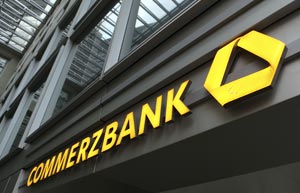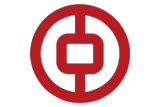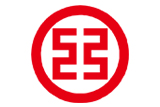Increasing presence in Parisian platform
Updated: 2012-07-13 11:28
By Li Xiang (China Daily)
|
|||||||||||
When Phan Nhay, general manager of Bank of China's (BOC) Paris branch, started introducing yuan-denominated products to his corporate clients in France more than a year ago, they were barely interested.
While investors in London and Singapore have been keen buyers for a while, making both of them the fastest-developing offshore yuan trading centres, finance houses and local financial authorities in the French capital were cold to the idea of considering the Chinese products.
But what a difference 12 months could make, he said.
"We are now in talks with the French Finance Ministry and the Paris Financial Markets Organization. Concrete moves are being made by the French to start yuan trading in Paris in the first half of next year," he said.
"France is a key nation in the eurozone and such a move will be a major fillip for yuan trading in the area.
"It will also help strengthen trade and investment relations between China and France."
If the early signs are anything to go by, Phan says he is confident that with every month the profile of the yuan will grow, and French demand for yuan-denominated products will build.
Take the Paris branch of BOC as a prime example of the mood. The outlet recorded total cross-border yuan settlement of 170 billion yuan ($26.7 billion) last year, the largest amount of all BOC branches outside the Chinese mainland, except Hong Kong.
And its yuan business now contributes almost half of the branch's total income.
Multinational interest in the Chinese currency is on the rise, particularly as many are using the currency for direct investment into China and the demand for bonds denominated in the Chinese currency is also growing.
"We simply wouldn't have seen such a rapid growth of our business over the past three years if it wasn't for the internationalisation of the yuan," Phan said. BOC opened its doors in Paris in 1986 as one of the very first overseas Chinese bank branches after the country opened up and adopted a market economy in 1978.
Phan grew up in Cambodia, but originally his family was from Wenchang in South China's Hainan province. He gained a doctoral degree in law in Paris, before working at UNESCO. He was involved in the founding of Nouvelles d'Europe, a major Chinese language newspaper in Europe.
In September 2011, Phan became the first head of a Chinese enterprise to win the distinguished Legion of Honour.
After 26 years in France, total assets at the BOC branch has grown to 6 billion euros ($7.5 billion), which Phan says is being driven strongly by the expansion of overseas investment by Chinese enterprises, with a particular emphasis recently on investment into Africa.
Between 2004 and 2011, overseas direct investment by Chinese banks grew 11.5 times, according to leading industrial strategy consultant company Roland Berger, which predicts in its recent research that China will become a net capital exporter after 2015.
"This trend will definitely continue to bring opportunities. The unique advantage of France is its tradition and network with the African continent.
"It provides a good financial platform for Chinese companies with projects and investment there," Phan said.
BOC is not alone in its growing French presence.
A rival from home, the Industrial and Commercial Bank of China, opened a branch in Paris last year. The Export-Import Bank of China will also turn its representative office in Paris into a branch soon.
Far from seeing other Chinese lenders as a threat, Phan suggests that Chinese banks should "complement each other's role" in overseas markets and engage in what he sees as "orderly and rational competition".
Looking forward, Phan says the main French focus will be expanding the branch network.
He says the ongoing financial troubles in Europe and the United States, offer Chinese banks an opportunity to gain more market share.
"The eurozone crisis and higher capital standards are putting a lot of pressure on European banks and they are starting to sell some of their overseas structural assets," Phan said.
"Chinese banks should take the opportunity to acquire some of the best-quality assets to boost their presence internationally."









